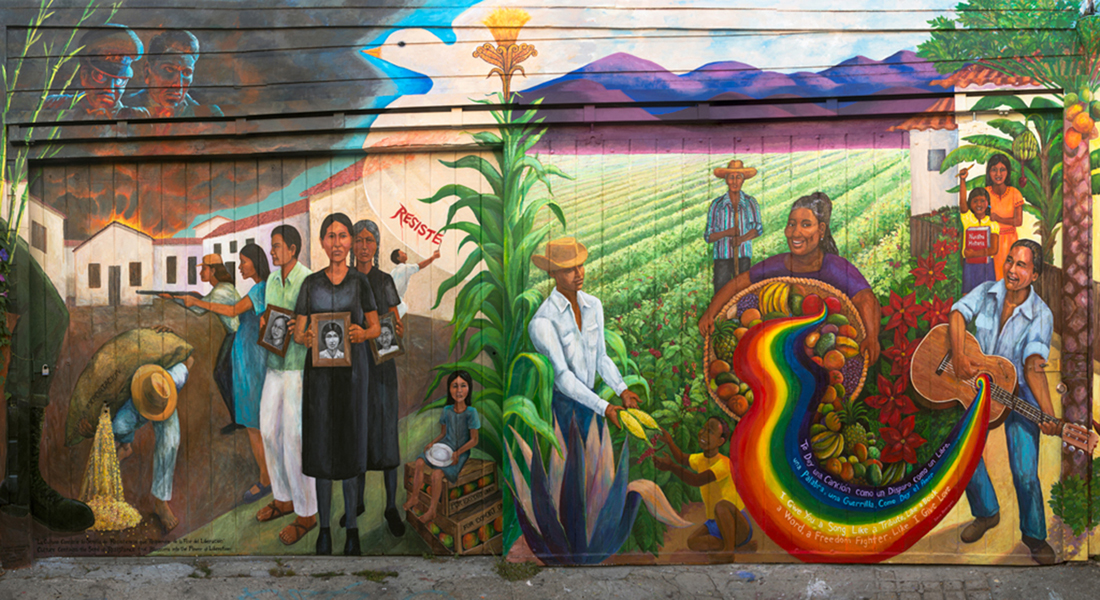Liberation Psychology

Culture Contains the Seed of Resistance Which Blossoms Into the Flower of Liberation,
by Miranda Bergman and O’Brien Thiele
Mural designed and painted in 1984 and completely restored in 2014
Balmy Alley, Mission District, San Francisco, CA
What Liberation Psychology Is
Liberation psychology is an orientation that seeks to develop and encourage local understandings and practices that can support people’s desires and actions to create a more just, peaceful, and sustainable world. Liberation psychology was first articulated as such in the 1980’s by Ignacio Martín-Baró, a Spanish born Jesuit and social psychologist working in El Salvador. Martín-Baró envisioned a psychology that would acknowledge the psychological and community wounding caused by war, racism, poverty, and violence; a psychology that would support historical memory and critical reflection; and a psychology that would aid the emergence of the sorts of subjectivity through which people felt they could creatively make sense of and respond to the world. What we reach for, according to Martín-Baró, “is an opening—an opening against all closure, flexibility against everything fixed, elasticity against rigidity, a readiness to act against all stagnation” (p. 183). Who we are in the present contains a kernel of something ideal in the future: “hunger for change, affirmation of what is new, life in hope” (p. 183). Psychology should be able to support this opening and to learn from those who are already doing so.
Learn About Liberation Psychology at Pacifica
Martín-Baró argued that by considering psychological problems as primarily individual, “psychology has often contributed to obscuring the relationship between personal estrangement and social oppression, presenting the pathology of persons as if it were something removed from history and society, and behavioral disorders as if they played themselves out entirely in the individual plane” (p. 27). Instead, liberation psychology should illuminate the links between an individual’s psychological suffering and well-being and the social, economic, political, and ecological contexts in which he or she lives. At Pacifica we work to widen the original focus of liberation psychology to include the ecological, and thus we speak of eco-liberation psychology and practices, in our Community Psychology, Liberation Psychology, Indigenous Psychology, and Ecopsychology.
While liberation psychology is most strongly established in Latin America, Martín-Baró’s work has become a rallying call to psychologists and cultural workers on all continents to place into conversation their theories and liberatory practices.

